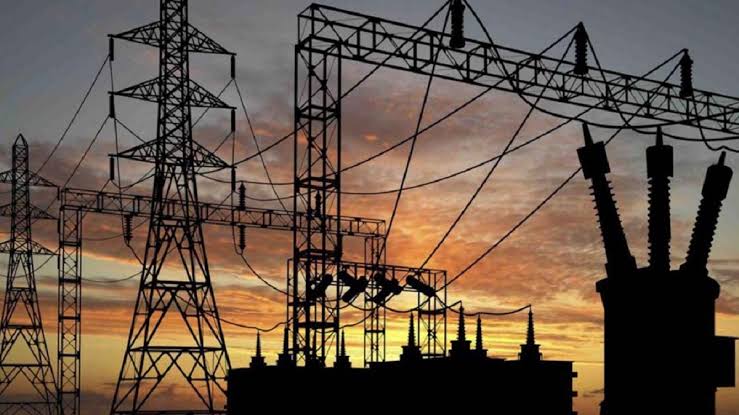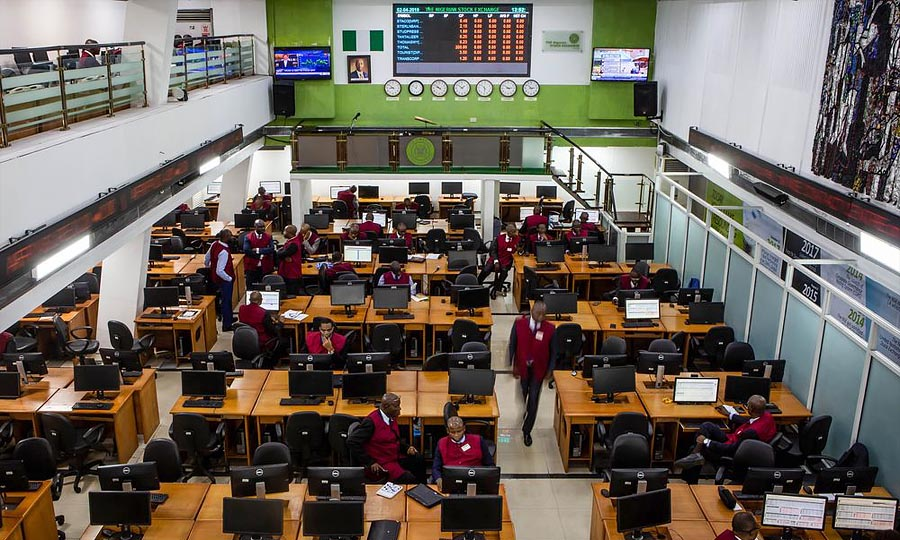Recently, the Lagos State Government launched the Òmi Èkó Project, an ambitious initiative aimed at transforming the state’s water transport system. In this in-depth conversation, the European Union Ambassador to Nigeria, Gautier Mignot, speaks on the EU’s commitment to supporting the state’s transport transformation, the significance of the inland water transport project, and broader cooperation in culture, education, and digital innovation. The Ambassador explains how this initiative aligns with the EU’s Global Gateway strategy and why Lagos is central to the partnership between Europe and Nigeria, Wale Igbintade brings excerpts
Ambassador, Lagos State recently launched the Òmi Èkó Project, which aims to transform water transportation through the introduction of electric ferries and upgraded infrastructure. Why did the European Union decide to support this initiative?
This project represents a tangible demonstration of the Federal and Lagos State Governments’ commitment to improving the quality of life of Lagos residents through a sustainable development model. For us in the EU, supporting initiatives that promote green, efficient, and inclusive transport aligns perfectly with our Global Gateway investment strategy.
We see this not just as a transport project but as an investment in people, communities, and the environment. Lagos is a city of more than 20 million people and is growing rapidly. Projects like Òmi Èkó are essential for easing urban congestion, improving connectivity, and supporting inclusive economic growth.
What exactly is the EU contributing to the Òmi Èkó initiative?
Through the European Investment Bank (EIB) and other European partners, Team Europe is contributing €300 million in subsidised loans (about ₦540 billion) and €16 million in grants, equivalent to approximately $110 million. This support is part of our broader commitment to the Global Gateway investment strategy, which seeks to mobilise sustainable infrastructure investments that address climate challenges, drive economic growth, and improve living standards. This level of financing demonstrates the confidence we have in Lagos and in Nigeria’s capacity to implement transformative projects.
How does this project fit into the EU’s Global Gateway strategy?
The Global Gateway strategy focuses on enhancing global connectivity and building resilient, sustainable infrastructure. Across Africa, we have identified 12 strategic transport corridors, four of which are in West Africa. The Lagos initiative contributes directly to the Abidjan–Lagos Corridor, a major regional transport route.
This corridor is central to improving trade, mobility, and regional integration. By supporting Lagos, we are contributing to a broader vision that links cities, creates opportunities, and drives sustainable development.
Lagos is already a bustling megacity. What kind of impact do you expect this project to have on ordinary residents?
The impact will be significant. Lagos is one of the fastest-growing cities in the world, and that growth puts enormous pressure on existing transport systems. This project will help ease congestion by scaling up from fragmented, small-scale transport networks to efficient and sustainable systems.
We expect CO₂ emissions to drop by 41,000 tonnes annually, and about 25 million passengers will save an average of three hours of travel time daily. That is time people can spend with their families, at work, or building businesses.
Crucially, the project is designed to be inclusive. It will ensure that women, children, persons with disabilities, and vulnerable groups have safe and affordable access to public transport. This is not just infrastructure, it is social investment.
Who will handle the construction and implementation of this project?
European companies are ready to bring their technical expertise and innovation to the table, but the selection of contractors is entirely the responsibility of Nigerian authorities. The process will follow transparent and competitive tenders, ensuring that the best possible partners are chosen. This reflects the Global Gateway approach, a partnership based on mutual respect for national leadership and sovereignty. We provide support, expertise, and financing, but the project remains owned and led by Nigeria.
How does this initiative align with the Lagos State Transport Master Plan?
Perfectly. This is not just a transport intervention; it is a transformative initiative. It will connect previously isolated communities to economic opportunities and complement other modes of transportation such as roads, buses, and rail.
The Lagos State Transport Master Plan is a visionary document. By investing in inland water transportation, Lagos is expanding mobility choices and reducing reliance on road traffic, which is often congested. This multimodal approach is exactly what modern cities around the world are embracing.
Beyond physical infrastructure, is the EU also supporting the development of skills and local capacity for this project?
Absolutely. For projects like this to be sustainable, we must build local capacity. The EU is working closely with relevant agencies to provide technical assistance and training. We want Nigerian professionals to be equipped with the skills to manage, maintain, and expand these systems. Our goal is to ensure that, in the years to come, this project will be operated and maintained efficiently by local expertise, creating jobs and stimulating local industries.
Environmental sustainability seems to be a key element of this project. Why is that important to the EU?
Climate change is one of the defining challenges of our time. We must act urgently, and transportation is a major source of greenhouse gas emissions. By supporting electric ferries and modern, green infrastructure, we are reducing carbon emissions and improving air quality.
We are proud to support projects that help cities transition towards net-zero carbon pathways. Lagos, with its size and economic significance, can become a model for other African cities.
How do you see this project improving economic opportunities for Lagosians?
Reliable and efficient transportation is an engine for economic growth. By improving connectivity across the city, we are reducing travel time and costs for workers and businesses. This increases productivity and encourages investment. Furthermore, new transport infrastructure often attracts additional development such as housing, commerce, and services. We expect this project to stimulate economic activities along the waterways and in surrounding communities.
Beyond transport, the EU has also expressed interest in Nigeria’s digital economy. Can you tell us more about this?
Certainly. Nigeria is a global creative and digital powerhouse. That is why we have committed €820 million to support its digital economy. This includes the deployment of 90,000 kilometres of optic fibre infrastructure, establishing digital hubs in Lagos, developing digital skills, and supporting innovation.
We believe the future of economic growth lies at the intersection of sustainable infrastructure, digital transformation, and human capital development. Supporting Nigeria in this transition is a strategic priority for us.
How is the EU engaging with Nigeria’s youth through these initiatives?
Youth are at the heart of our engagement. Through Erasmus+ and Horizon Europe, we are offering scholarships, research grants, and exchange opportunities to Nigerian students, researchers, and creative talents. We also support major cultural and creative festivals across the country, from Kaduna and Jos to Enugu and Abuja. These programmes are designed to give young Nigerians global exposure, build their skills, and strengthen people-to-people ties between our regions.
How does cultural diplomacy fit into the EU’s broader relationship with Nigeria?
Culture is a powerful connector. It builds understanding, respect, and shared values. Nigeria’s creative industries, including music, film, and fashion, are world-renowned. By supporting cultural exchanges, festivals, and collaborations, we are deepening our partnership beyond economics and politics.
Our cultural diplomacy efforts are aimed at supporting Nigeria’s immense creative potential and giving young people opportunities to thrive globally.
From your perspective, what makes Lagos a strategic city for this kind of investment?
Lagos is Nigeria’s economic powerhouse and one of Africa’s most dynamic cities. It has a young, vibrant population and enormous potential for innovation and growth. Investing in Lagos has a ripple effect economically, socially, and regionally. Lagos can serve as a model for other cities in West Africa. If we can make sustainable urban transport work here, it will inspire similar projects across the continent.
What challenges do you anticipate in implementing a project of this scale, and how can they be overcome?
Every large infrastructure project faces challenges, whether technical, financial, or institutional. The key is strong governance, transparency, and consistent political will. We are confident that with the commitment shown by the Lagos State Government and the support of international partners, these challenges can be managed effectively. Continuous dialogue, stakeholder engagement, and accountability are essential.
The EU has often stressed the importance of local ownership in development projects. How is that principle reflected in this initiative?
Local ownership is at the core of our approach. This is not an EU project; it is a Lagos State project supported by the EU. The vision, leadership, and execution are Nigerian. Our role is to bring in financing, technical expertise, and global best practices to support that vision. This ensures the project is sustainable, relevant, and responsive to local needs.
How will this project benefit vulnerable groups, including women and persons with disabilities?
This is an important point. We believe that infrastructure must serve everyone. The project includes measures to ensure accessibility and safety for all users, including women, children, and persons with disabilities. Inclusive design features, affordable fares, and well-designed stations will help ensure that no one is left behind. Equity and accessibility are as important as economic efficiency.
Finally, Ambassador, what is your long-term vision for Lagos and Nigeria in this partnership?
My vision is that in the near future, Lagos will stand as a model of sustainable, inclusive, and modern urban transport in Africa. I see a Lagos where people spend less time in traffic, breathe cleaner air, and have equal access to opportunities. I see a Lagos where water, road, and rail systems work together seamlessly, supported by digital technologies and a thriving creative economy. And I see an even stronger partnership between the EU and Nigeria, one built on trust, shared values, and a commitment to sustainable development. Together, we can make this vision a reality.



